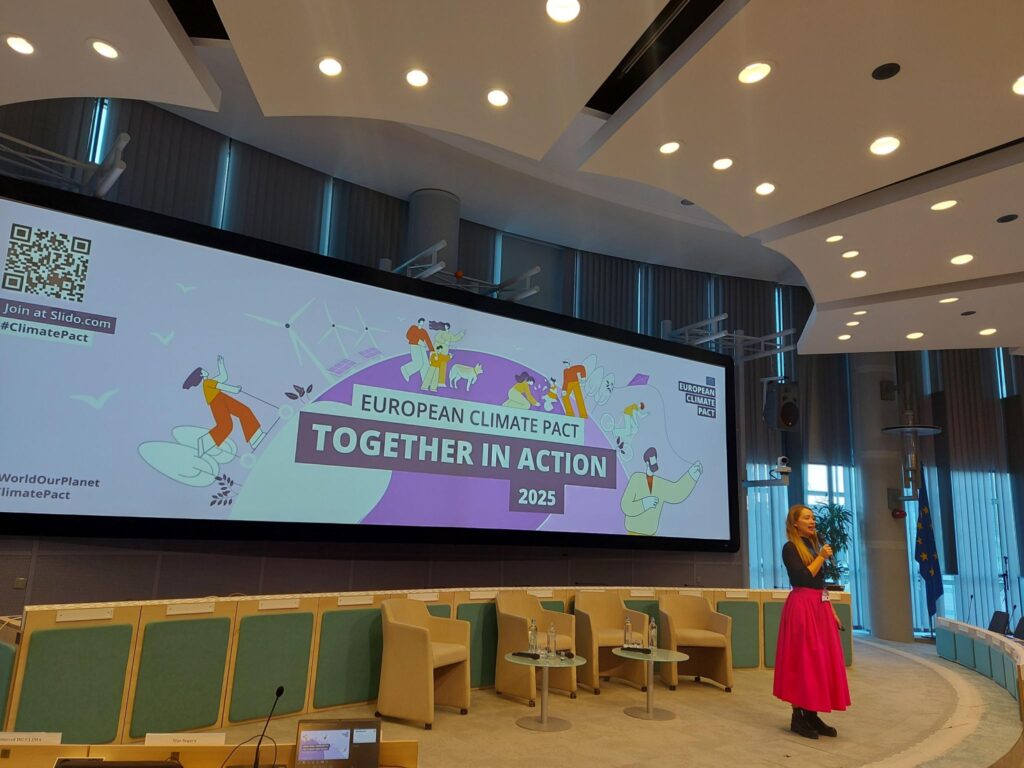
On 19 March 2025, REGILIENCE hosted a breakout session as part of the European Climate Pact Annual Event “Together in Action” in Brussels and online moderated by FEDERENE, project partner. The session, “Mobilising Communities for Climate Adaptation: From Engagement to Impact”, focused on practical strategies for stakeholder engagement in climate adaptation, with contributions from REGILIENCE and its sister projects under the EU Mission on Adaptation to Climate Change: ARSINOE, IMPETUS and TransformAr.
The session brought together policymakers, practitioners, project teams, and civil society actors to discuss the role of local communities in shaping adaptation pathways. Discussions centred on the value of trust, long-term engagement, cross-sector dialogue and the importance of working within the local context to co-create effective responses to climate challenges.
Placing communities at the centre of adaptation
The session opened with a keynote speech from Elena López Gunn, Climate Pact Ambassador and representative of MIP4Adapt. She reminded the audience that climate adaptation is no longer a distant prospect, but a present and pressing reality. Drawing on examples such as the mobilisation that followed the floods in Valencia, she underlined that adaptation requires planning, inclusive governance, and trust between institutions and citizens. She also highlighted the intergenerational dimension of climate change, and the need for inclusive approaches that allow all voices—especially local ones—to be heard and valued.
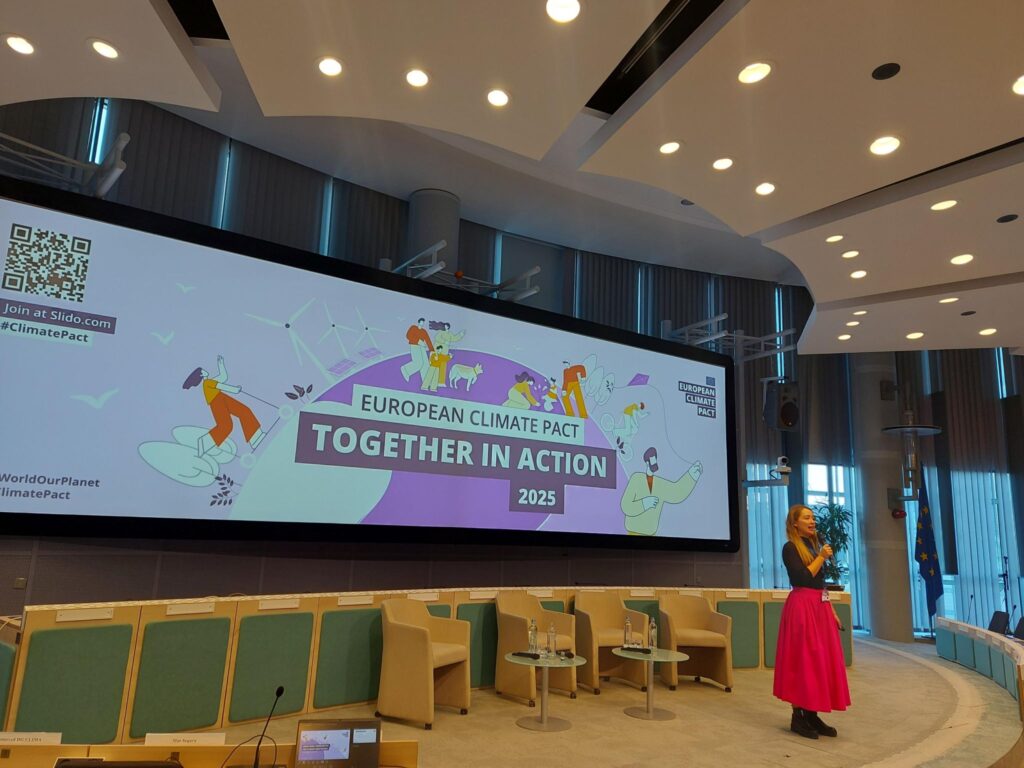
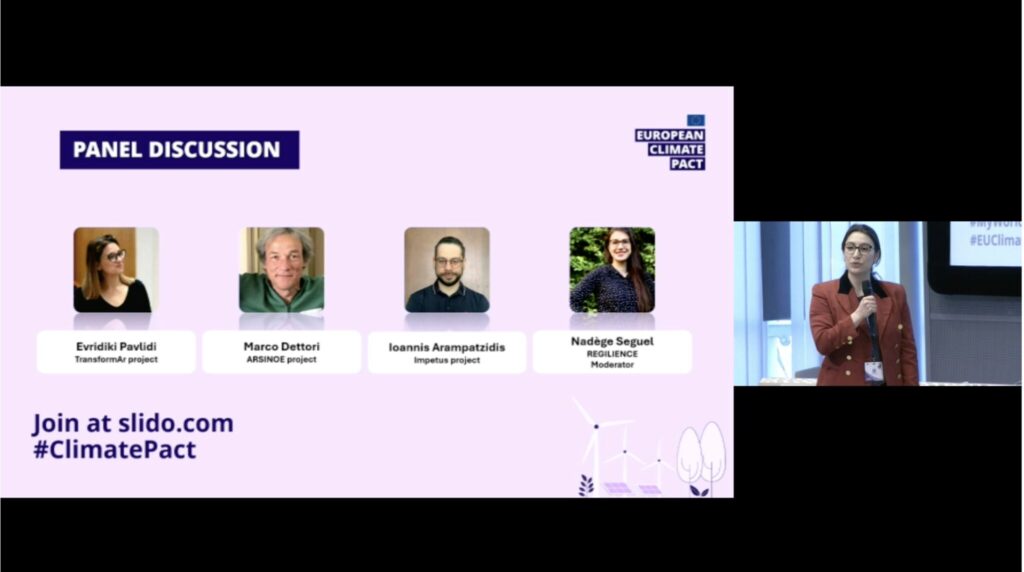
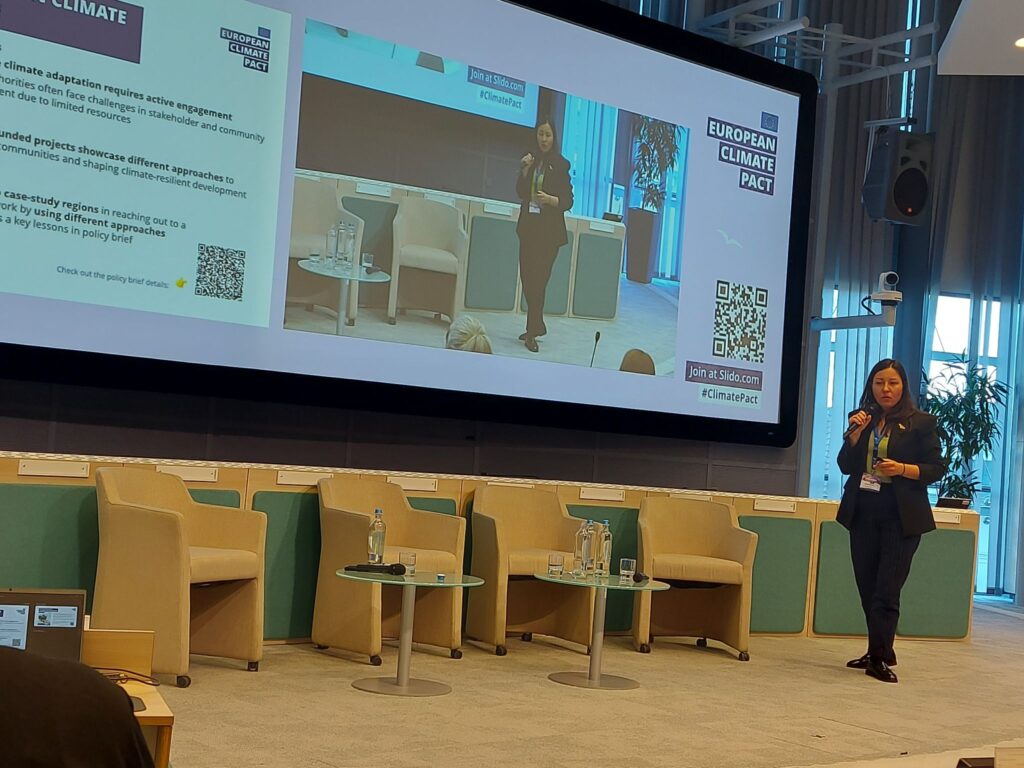
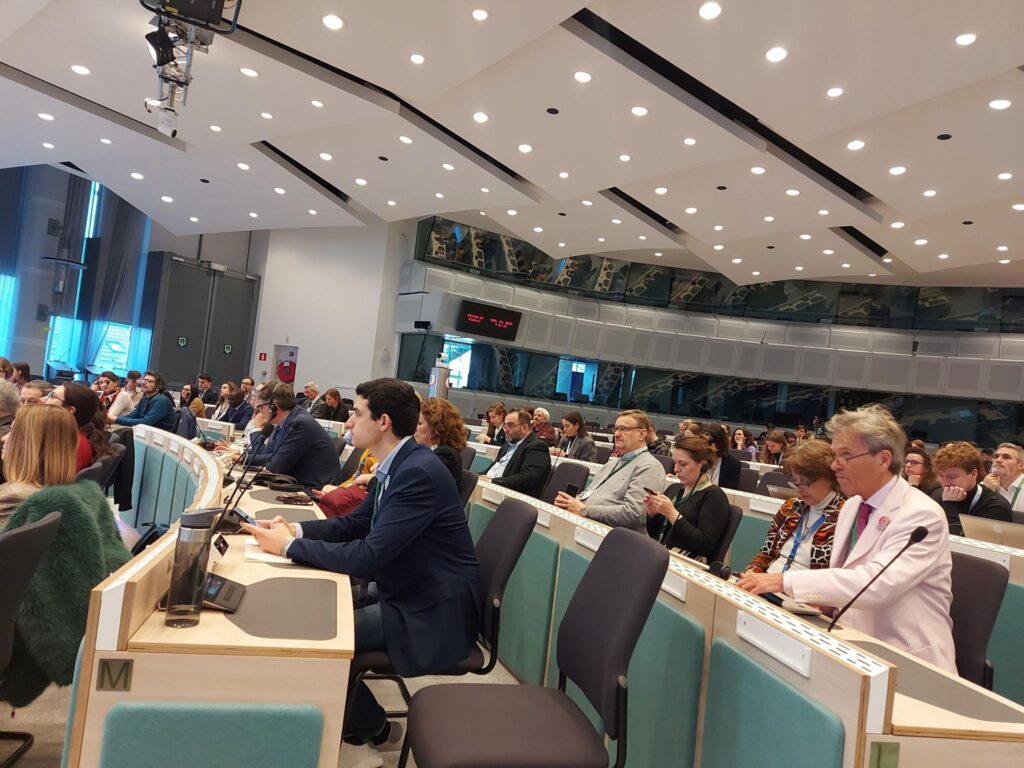
Learning from practice: insights from EU Mission projects
REGILIENCE sister projects—IMPETUS, ARSINOE and TransformAr—shared field-based experiences on engaging communities, youth, and the private sector in adaptation processes:
- Ioannis Arampatzidis (IMPETUS) emphasised the economic rationale for adaptation and the growing role of private sector actors in financing and co-developing solutions. He highlighted the importance of data availability and knowledge-sharing to support decision-making.
- Marco Dettori (ARSINOE) reflected on the cultural divide between rural and urban stakeholders, particularly in the agricultural sector. He discussed efforts to improve dialogue, foster trust, and support local value chains through targeted engagement.
- Evridiki Pavlidi (TransformAr) presented a participatory approach involving students in climate monitoring and local adaptation planning. By equipping them with data tools and opportunities to contribute, the project empowered younger generations to become active participants in resilience building
These examples illustrated a shared commitment to inclusive and locally grounded engagement, while also acknowledging the challenges of time constraints, initial scepticism, and the need to balance short-term expectations with long-term impact.
From discussion to action
Moderated by Nadège Seguel, Project Officer at FEDARENE, REGILIENCE project partner, the panel discussion allowed for an open and honest exchange of experiences. Panellists discussed the importance of co-designing solutions, of recognising and valuing local expertise, and of maintaining continuous dialogue between institutions, businesses, and citizens. Participants agreed that building trust is a long-term effort, but one that is essential for ensuring that adaptation strategies are both legitimate and effective.
This session was a timely reminder that successful climate adaptation depends not only on sound strategies, but on the ability to engage people meaningfully—across sectors, generations, and territories. The examples shared by REGILIENCE and its sister projects reflect a broader shift from awareness to action, and from fragmented efforts to systemic, co-designed solutions.
Concrete recommendations for stakeholder engagement
During the session, a new Policy Brief on Stakeholder Engagement in Climate Adaptation, developed as part of the project’s efforts to support local and regional authorities, was presented by Joanna Makocka, from F6S, REGILIENCE project partner. The brief consolidates key lessons from REGILIENCE and its sister projects, and outlines four practical recommendations:
- Tailor engagement strategies to the local context and priorities.
- Foster long-term relationships with communities and stakeholders.
- Build on existing knowledge and tools developed by other initiatives.
- Leverage EU-funded projects to support sustained, inclusive engagement.
As climate challenges accelerate, so must our capacity to mobilise communities, build trust, and turn participation into long-term resilience. The Policy Brief now available is one step in this direction, offering a concrete framework for those looking to strengthen inclusive adaptation processes at the local and regional level.
Addressing climate challenges
The session emphasised that climate adaptation is not just about technological innovation, but about empowering communities and fostering collaboration among different stakeholders. Even with the scale of the challenge, we hold the power to create resilient, sustainable communities by working together.
REGILIENCE and its partners will continue supporting climate adaptation by sharing tools, insights, and real-world practices with supporting regions and beyond.